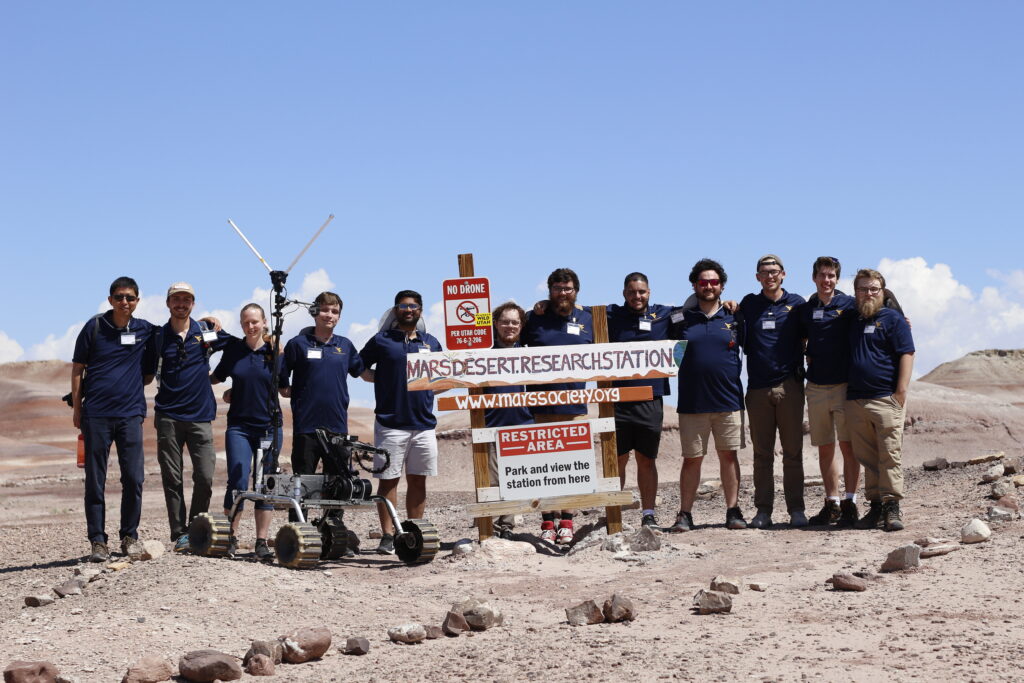West Virginia University’s robotics team “{Team Mountaineers” topped dozens of other teams in a competition to design and build the next generation of Mars rovers during the 2023 University Rover Challenge in Hanksville, Utah. The competition, with teams from 10 countries, was held May 31-June 3.
Stephen Jacobs, team lead and mechanical engineering graduate student, said the team of 75 undergraduate students and five graduate student mentors designed a rover capable of sample collection and analysis as well as autonomous navigation over rough terrain.
“There’s a science mission, this is a big focus of the Mars society, which is the whole reason that we send these rovers to Mars is to do as much science as we possibly can,” Jacobs said. “So we do soil collection onboard our rover, and then we do onboard spectrometry to try to analyze the soil samples for signs of life. Then the final competition for us, at least this year, was extreme delivery, which is driving across rugged terrain, and picking up larger objects and doing it over longer distances.”
According to Jacobs, after a 10th place finish last year the team was motivated to succeed this year.
“We said, ‘Next year, we can do it. There’s nothing stopping us from winning this challenge.’” he said. “So all over the last year, we’ve been working really hard, we’ve had a clear goal in mind, we’ve known what it’s taken. And then we went out and executed our plan, and everything sort of fell into place.”
Jacobs said the win represents a culmination of the work of hundreds of students since the team was founded six years ago.
“For the first three years, there was a lot of growth and development,” he said. “When you start a team with no background in robotics, you just have undergraduates who have the normal background of their classwork and maybe some other projects. There’s a ton to learn.”
The team has become a key part of Jacobs’ college experience since he joined his sophomore year.
“It’s something that has really been one of the cornerstones of my college life. It’s where I’ve met my best friends. It’s where I’ve spent all my time,” he said. “There are weeks where I’ve been in the lab 80 hours working on the robot with my friends. I’m really happy to be able to make this happen for all of the students who have graduated. They also, in the last two years, put their hearts and souls into it. And I’m just really proud for the whole team.”






















